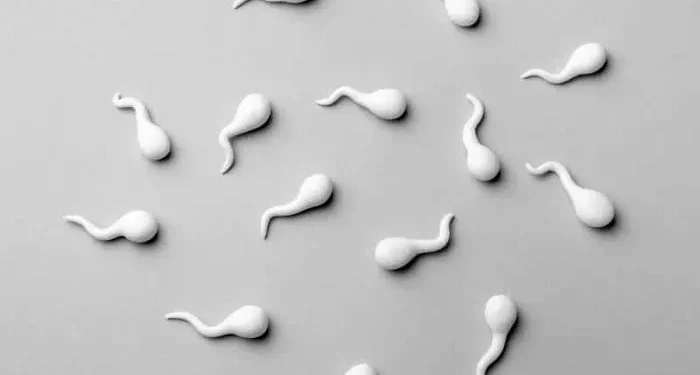Infertility can be a distressing issue for many couples, and understanding the basics of reproductive health is crucial. One important aspect of male fertility is the health of ejaculate. This article will explore what healthy ejaculate looks like, providing detailed information on its characteristics, factors affecting it, and how to maintain optimal reproductive health.
Ejaculate, commonly referred to as semen, is a fluid containing sperm and other substances produced by the male reproductive organs. Healthy ejaculate is essential for male fertility, as it plays a crucial role in the transport and nourishment of sperm. In this comprehensive guide, we will delve into the various aspects of ejaculate health, examining its appearance, consistency, volume, and other vital characteristics.
Components of Ejaculate
Healthy ejaculate consists of several components:
Sperm Cells: These are the male reproductive cells necessary for fertilizing a female egg.
Seminal Fluid: Produced by the seminal vesicles, this fluid provides nutrients for the sperm and helps in their motility.
Prostate Fluid: This fluid, produced by the prostate gland, helps to neutralize the acidity of the vaginal tract, creating a favorable environment for sperm.
Bulbourethral Fluid: Also known as pre-ejaculate, this fluid helps lubricate the urethra for sperm passage.
See Also: Several Common Factors Affecting Male Fertility
Characteristics of Healthy Ejaculate
Understanding the characteristics of healthy ejaculate can help identify potential fertility issues.
Color
Healthy ejaculate typically appears whitish-gray in color. Variations can occur, but significant changes in color can indicate potential health problems. For example:
Yellowish Hue: This can be normal but may sometimes indicate the presence of urine.
Reddish or Brownish Tint: This could suggest blood in the semen, possibly due to an infection, inflammation, or injury.
Greenish Color: This may indicate a bacterial infection and should be evaluated by a healthcare professional.
Consistency
Healthy ejaculate has a gel-like consistency that liquefies within 15 to 30 minutes after ejaculation. This liquefaction process is crucial as it enables the sperm to move freely. Abnormal consistency can be a sign of an underlying issue:
Too Thick: If the semen remains thick and does not liquefy, it can hinder sperm movement.
Too Watery: This can indicate a low sperm count or other issues affecting sperm production.
Volume
The average volume of ejaculate ranges from 1.5 to 5 milliliters per ejaculation. Factors that can affect semen volume include:
Frequency of Ejaculation: Frequent ejaculation can reduce semen volume.
Age: Semen volume tends to decrease with age.
Hydration Levels: Adequate hydration is essential for maintaining healthy semen volume.
Odor
Healthy ejaculate has a mild, chlorine-like odor. A foul or unusual smell can be a sign of an infection or other health issues and should be investigated.
pH Level
The pH of healthy semen is slightly alkaline, typically between 7.2 and 8.0. This alkalinity helps protect sperm from the acidic environment of the female reproductive tract.
Factors Affecting Ejaculate Health
Several factors can influence the health of ejaculate:
Lifestyle and Diet
A healthy lifestyle and balanced diet are crucial for maintaining optimal ejaculate health. Key considerations include:
Hydration: Drinking plenty of water ensures proper hydration, which is vital for producing healthy semen.
Nutrient-Rich Diet: Consuming foods rich in antioxidants, vitamins, and minerals supports sperm health. Key nutrients include zinc, selenium, and vitamins C and E.
Avoiding Toxins: Reducing exposure to environmental toxins, such as pesticides and heavy metals, can help maintain healthy semen quality.
Physical Health
Maintaining good physical health is essential for reproductive health. Key factors include:
Regular Exercise: Physical activity promotes overall health, including reproductive health.
Weight Management: Maintaining a healthy weight helps regulate hormones that affect sperm production.
Avoiding Smoking and Excessive Alcohol: Both smoking and excessive alcohol consumption can negatively impact sperm health.
Medical Conditions
Certain medical conditions can affect ejaculate health. These include:
Infections: Sexually transmitted infections (STIs) and other infections can harm semen quality.
Hormonal Imbalances: Conditions affecting hormone levels, such as hypogonadism, can impact sperm production.
Genetic Conditions: Some genetic conditions, like Klinefelter syndrome, can affect fertility.
How to Maintain Healthy Ejaculate
Maintaining healthy ejaculate involves adopting a healthy lifestyle, addressing medical issues, and avoiding harmful habits.
Healthy Lifestyle Choices
Adopting healthy lifestyle choices can significantly improve semen quality:
Balanced Diet: Include plenty of fruits, vegetables, whole grains, lean proteins, and healthy fats in your diet.
Regular Exercise: Aim for at least 150 minutes of moderate-intensity exercise each week.
Adequate Sleep: Ensure you get 7-9 hours of sleep each night to support overall health and hormone regulation.
Avoid Harmful Habits
Avoiding certain habits can also help maintain ejaculate health:
Quit Smoking: Smoking can damage sperm and reduce semen quality.
Limit Alcohol Intake: Excessive alcohol consumption can negatively affect sperm production.
Avoid Illicit Drugs: Drugs such as anabolic steroids, marijuana, and cocaine can impair sperm health.
Manage Stress
Chronic stress can affect hormone levels and semen quality. Techniques to manage stress include:
Relaxation Techniques: Practices such as meditation, yoga, and deep breathing can help reduce stress.
Counseling: Seeking support from a counselor or therapist can provide strategies to manage stress effectively.
Regular Health Check-Ups
Regular health check-ups can help identify and address any medical issues affecting ejaculate health. Important aspects include:
Screening for Infections: Regular screening for STIs and other infections can help maintain reproductive health.
Hormone Testing: Evaluating hormone levels can identify imbalances that may affect sperm production.
Genetic Counseling: For those with a family history of genetic conditions, genetic counseling can provide valuable information on reproductive health.
When to Seek Medical Help
It is essential to seek medical help if you notice any significant changes in your ejaculate or experience symptoms such as:
- Persistent changes in color, consistency, or volume
- Pain or discomfort during ejaculation
- Difficulty achieving or maintaining an erection
- Unexplained infertility after a year of trying to conceive
A healthcare professional can perform a thorough evaluation, including semen analysis and other diagnostic tests, to identify any underlying issues and recommend appropriate treatment.
Conclusion
Understanding what healthy ejaculate looks like and the factors affecting its health is crucial for male fertility. By adopting a healthy lifestyle, managing stress, and seeking regular medical check-ups, men can maintain optimal reproductive health. If you notice any changes or have concerns about your ejaculate, do not hesitate to seek medical advice. Early intervention can help address potential issues and improve fertility outcomes.
This comprehensive guide provides an in-depth look at the characteristics of healthy ejaculate and the steps men can take to ensure their reproductive health. By staying informed and proactive, men can support their fertility and overall well-being.
Related Links:



























